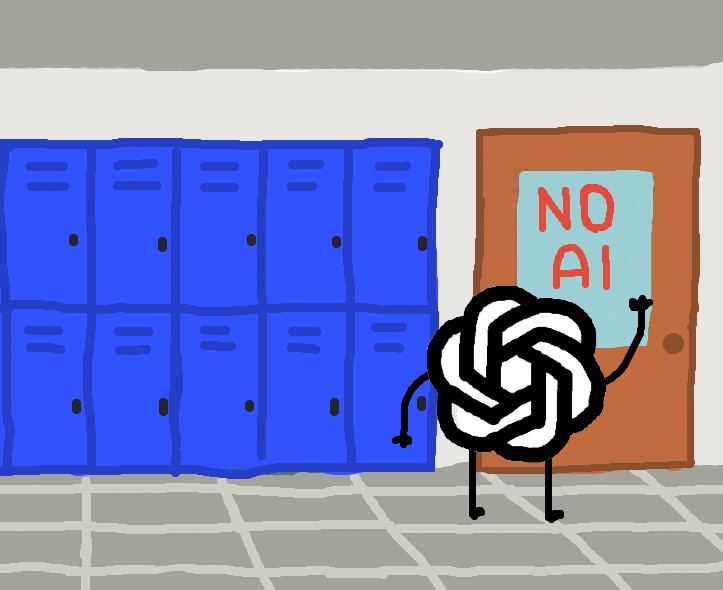When out getting lunch or coffee with a friend or doing just about anything really, people generally keep their phones in their pocket. If one person takes out their phone, then the other also pulls our their phone. People used to be courteous about this; if we were expecting a text message or an email, we would use our phones. But now it occurs unconsciously as well. We often won’t even notice until the screen is displayed in front of us. Keeping an eye out lately has largely confirmed our suspicions. It is common even with siblings only a few years younger than us; their generation generally finds it acceptable to browse their phones frequently, even when among friends.
It is a powerful attraction. Studies of conversation in natural and laboratory settings from psychologists and universities show that when two people are communicating, the simple presence of a phone on a table between them changes both what they talk about and the amount of connection that they feel. Conversation is kept on topics where people won’t mind being interrupted. Even a silent phone disconnects us.
Authors and psychologists are saying that many youth are changing to the “app mindset,” which motivating teens and youth to seek easier access to other people. In terms of identity youth today packaged theirs with the “cool” look of online profiles. But often we have found that the polished and perfect look often hides anxiety or an outwardly expressed need for approval. There has been an abundance of articles warning that phones are making us prone to distractions, that Instagram is preventing us from enjoying the world around us, that young people don’t know how to hold a conversation or ask someone out. And so on.
But they don’t get at the real problem with phones and social media: they create an addictive and toxic world that revolves around a dull and unfulfilling platform of superficial engagement, replacing real sources of meaning with artificial ones. We lose track of the number of times we find our close friends scrolling through social media without any real purpose.
Paradoxically, as cell phones have made us more alone, we believe they have made it harder to be alone. From Snapchat to Instagram, to simply texting, you are always able to be in contact with someone. But social media, since it allows you to meet new people and build deeper friendships with people you already know, could decrease your in-person social engagement. Since social media replaces conversations and other forms of interaction that would be made in person, it makes people less willing to go out and meet people, and provides an endless amount of low-quality entertainment to keep us occupied (distracted). Cell phones have started a new types of conversation that have restructured our social environment.
Students have mastered how to look someone in the eye and type on the their phones at the same time. They say it’s a skill mastered in middle school when it was a necessity to text in class without getting caught. Now the skill is used when students want to be both with their friends and “elsewhere.”
Currently we feel less of a need to hide the fact that we are dividing out attention. Many speak enthusiastically about the good things from a life lived with technology. You can therefore you can put your attention wherever you want it to be. You never have to be bored. You can change your attention from the people in the room to the world you can find on your phone. Even if we think we are bored, the brain is working hard to process information we’ve taken in to in to replenish itself .Even if the most pessimistic view of modern technology is correct; it is just like any number of things, an impediment to finding meaning and happiness in life. It doesn’t make a full and worthwhile life impossible, it just makes it slightly more difficult.
Now, constant connection to the Internet via cell phones and laptops has changed well established rhythms of human thinking. There used to be times when we would socialize and learn from the people and the world around us and times when we were simply able to be alone with our thoughts. This stream of distractions not only prevents deep thinking but also the deep feeling that allows us to connect emotionally with others.
We have adapted to being connected all the time, but that has also meant that we avoid open-ended and spontaneous conversation. The kind of conversing where we learn to make eye contact, to become aware of another person’s posture and tone, to comfort one another, and to challenge one another. During these conversations is where we learn who we are. If you are unable to be alone with your own thoughts, you are unable to hear what others have to say. The lack of face-to face interaction is depersonalizing the way in which we communicate. There is an absence of vulnerability in conversations over cell phones and this deficiency may translate into substantial changes in human development.
Think of the feeling you have after an afternoon or evening spent with the people you love; imagine the effect it has on your mood, your sense of belonging and self-worth. Now think of the feeling you have after an afternoon or evening spent texting, playing games on your phone, or scrolling through social media. In our experience, there is no comparison.
Empathetic conversations can still be found today, but the trend line is clear.
Research is now catching up without intuitions. We are faced with a decision. It’s not about giving up our phones, but about using them with different, greater intention. Conversation, face to face, is still there for us to reclaim. Want to talk about it?








